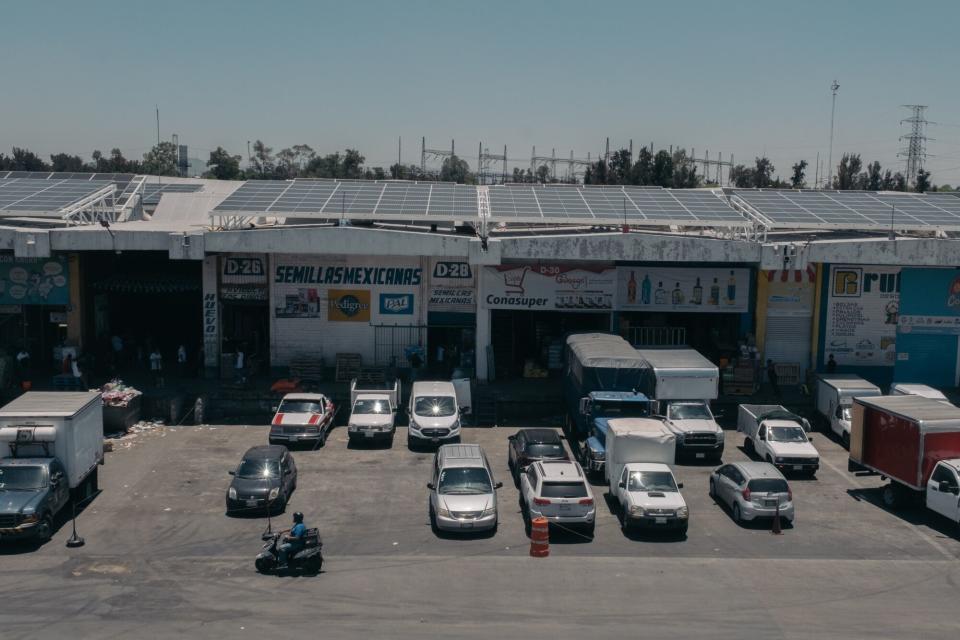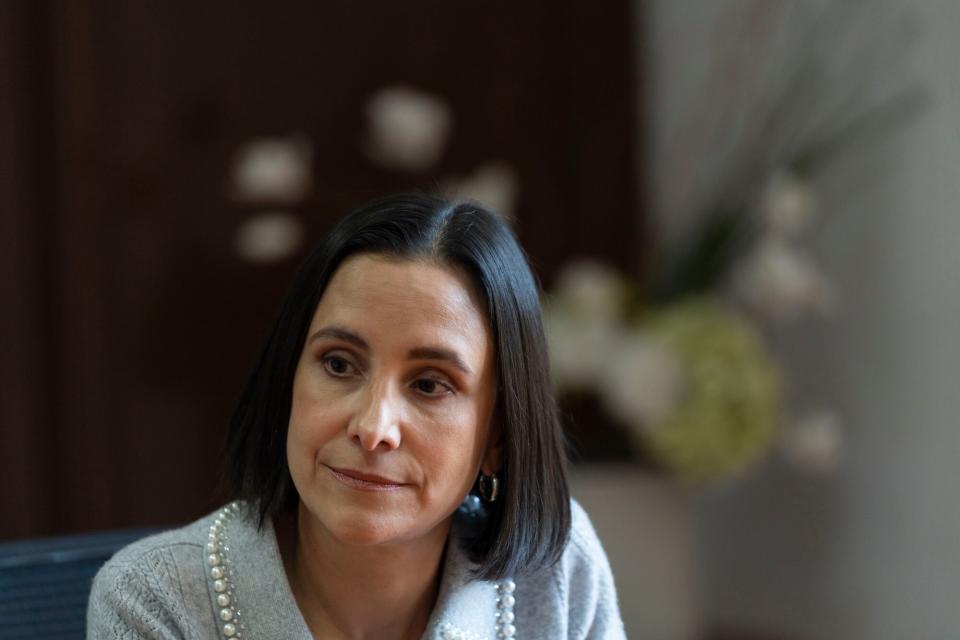Mexico City Tax Strategy Could Go National, Sheinbaum Ally Says
- Oops!Something went wrong.Please try again later.
(Bloomberg) -- A move similar to the expansion of the Mexican capital’s tax base could be achieved at the national level to allow the government to grow its revenue, said Mexico City Administration and Finance Chief Luz Elena Gonzalez, a long-time colleague of presidential candidate Claudia Sheinbaum.
Most Read from Bloomberg
Buffett Says ‘Eye-Popping’ Results Unlikely With Record Cash
BYD Unveils $233,450 EV Supercar to Rival Ferrari, Lamborghini
A focus on boosting collection from property and income taxes, combined with financial intelligence that allowed the government to go after evaders, allowed the city to increase revenue since 2018, she said in an interview with Bloomberg News. Such measures allowed the city to reduce debt in real terms, added Gonzalez, who was named to the role when Sheinbaum was the city’s mayor.
“One of the myths that we have struck down is that there isn’t money,” said Gonzalez from her office in Mexico City’s main square. “We improved the collection mechanism and we implemented a fiscal program where we gave priority to those who voluntarily met their obligations, expanding the taxpayer base.”
Sheinbaum, who’s the presidential frontrunner and is competing for the ruling Morena party in the June election to succeed President Andres Manuel Lopez Obrador, hasn’t outlined her proposals in detail. Campaigning formally starts March 1.
Read More: Mexico Poised to Elect 1st Female Leader After AMLO Party Pick
Gonzalez previously held roles in transportation and education in a series of city governments, before being selected to work as Sheinbaum’s finance chief, a role she has continued under current Mayor Marti Batres. Under her charge, the city also sought to centralize operations in the Finance Ministry, increasing oversight of city programs, such as one that provides grants for schoolchildren.
She declined to say whether she would consider working in the federal government and said she continues to focus on her current role. Analysts and local executives have pointed to her as a potential contender for a top spot at the Finance Ministry under a Sheinbaum presidency.
Scalable Projects
Among the city administration’s more notable achievements, Gonzalez said that spending on public works — ranging from cable cars that pass over traffic-ridden parts of the city, and rollout of new trolleybuses and electric buses — have considerably improved the standard of living.
“We see transport as a way of leveling out rights,” she said. “We brought public transit to totally forgotten areas.”
The city’s biggest expense on social programs is on transport subsidies, on which it spends 19 billion pesos ($1.1 billion) annually. Transport is a sensitive issue for most households, as it represents one of the biggest expenses, so this subsidy is an “investment,” she said.
She pointed to a solar plant on the rooftop of a major city market as an example of the kinds of projects that embody Sheinbaum’s background in climate change research and her interest in energy. The plant, and EV buses, are among the initiatives that could be scaled up in other parts of the country, she added.
“They’re projects that benefit the population directly, while also protecting the environment,” she said.
Read More: Climate Expert Claudia Sheinbaum Aims to Lead Oil-Rich Mexico
Mexico is going through a drought that has left the main water reservoirs that feed the capital and its metropolitan areas at a 27-year low, affecting 12 of 16 boroughs in the city, according to data from local water authority SACMEX.
Regarding this issue, Gonzalez pointed to various investments made in recent years, from projects to prevent overexploitation of water resources to initiatives that capture rainwater in schools.
“We’ve made the investments that we needed to and we’ll continue to make them,” she said. The effects of the current drought on the population “are a priority for the city’s government, for the state of Mexico, and for the federal government. This is a priority in terms of resources — we won’t leave the city without water.”
Reducing the number of programs and directing more money to the administration’s key initiatives, which happened at both the federal and city level, was part of the government’s efforts to increase oversight and ensure funds didn’t go missing, Gonzalez said.
She praised federal cash programs directed at the elderly, farmers and disabled for helping reduce the poverty rate, according to the latest official data from 2022. Gonzalez also lauded current Mexican Finance Minister Rogelio Ramirez de la O for his responsible management of the country’s budget, and said she trusted his office’s forecast about the fiscal balance and growth for this year and the next.
She praised Sheinbaum for being data-driven and for making “decisions based on scientific evidence.”
The capital’s revenue level has long been higher than that of many of Mexico’s state and municipal governments. States on average generated 18.6% of their revenue in comparison to Mexico City’s 48.7%, reducing the capital’s dependency on the federal government, according to Maria del Carmen Martinez-Richa, of Moody’s Investors Service’s local unit, which rates the city’s local debt as AAA with a stable outlook.
Read more: Mexico Poverty to Keep Falling on Impact of Aid, Yorio Says
Gonzalez, who participated in a panel event in January in which some of the country’s most pressing issues were discussed, declined to comment on state-owned oil giant Petroleos Mexicanos SA. In January, she said the country should rethink the indebted company’s business plan.
--With assistance from Guillermo Molero.
Most Read from Bloomberg Businessweek
How Capital One’s $35 Billion Discover Merger Could Affect Consumers
Can the Masters of Hipster Cringe Conquer Hollywood With Wall Street Cash?
Plug-In Hybrids Are Booming in the World’s Biggest EV Market
©2024 Bloomberg L.P.




